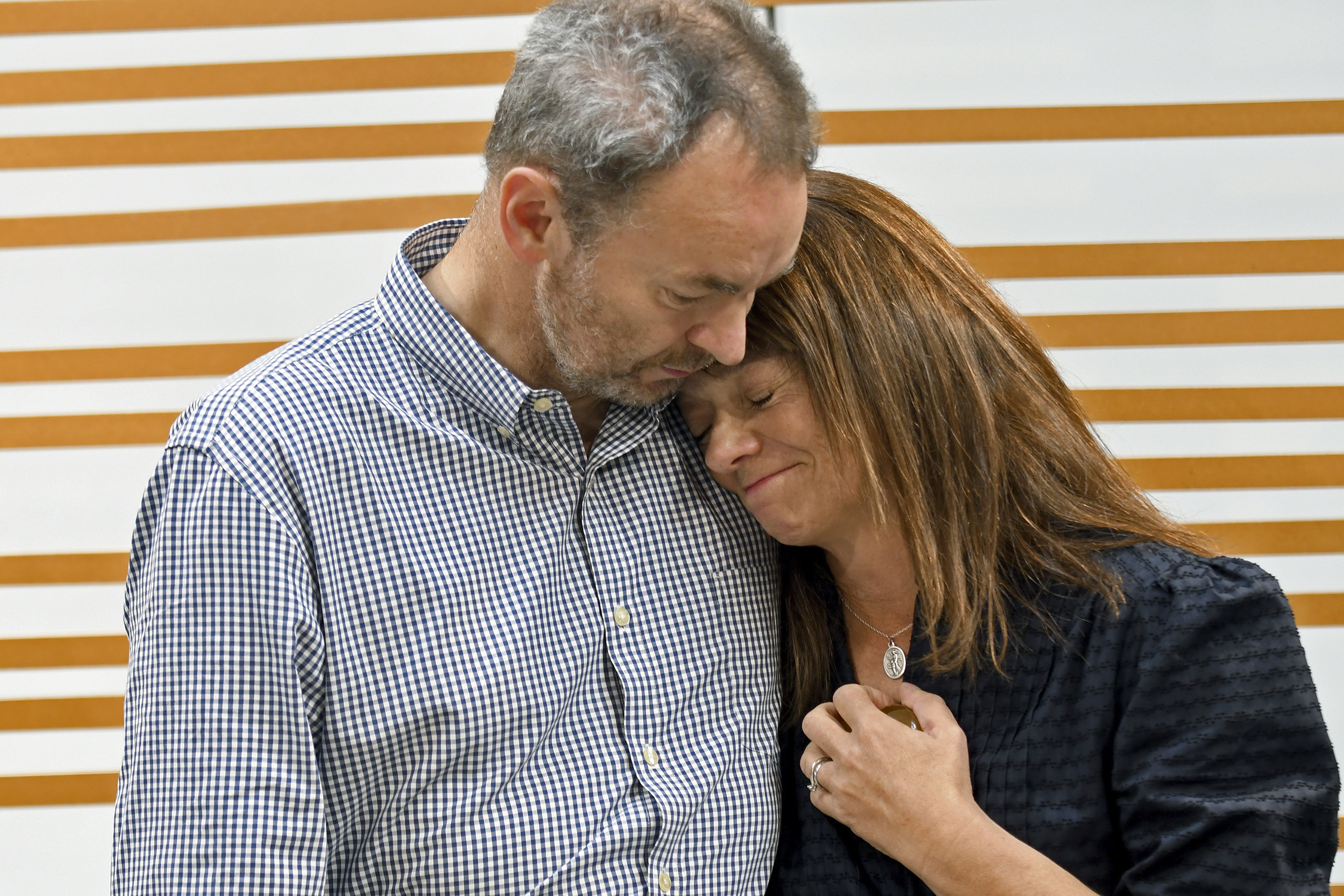A moderate Republican senator crucial to any White House hopes of getting U.N. Ambassador Susan Rice confirmed as secretary of state said Wednesday that there are still lingering unanswered questions about the deadly Sept. 11 attack in Libya.
Emerging from a 95-minute, closed-door meeting with Rice, Sen. Susan Collins of Maine said she would need more information before she could consider backing the ambassador if President Barack Obama tapped her to succeed Secretary of State Hillary Rodham Clinton.
For full politics coverage, visit NBCNews.com.
At issue is Rice's much-maligned explanation for the attack on the U.S. consulate in Benghazi that killed U.S. Ambassador Chris Stevens and three other Americans. In a series of talk show appearances, Rice blamed the attack on a spontaneous demonstration to an anti-Muslim video rather than terrorism.
"I still have many questions that remain unanswered," Collins told reporters after the meeting. "I continue to be troubled by the fact that the U.N. ambassador decided to play what was essentially a political role at the height of the contentious presidential election campaign by agreeing to go on the Sunday shows to present the administration's position."
Collins also expanded her criticism of Rice on a new front -- the 1998 attacks on American embassies in Kenya and Somalia by al Qaida that killed 12 Americans. Rice had served as assistant secretary of state for African affairs at the time and Collins said she was "troubled" by similarities between both cases, NBC News reported.
"In both cases the ambassadors begged for additional security,” Collins said, but the requests were turned down by the State Department.
U.S. & World
Visit NBCNews.com for breaking news, world news, and news about the economy
Collins said that Rice told her she would "have to refresh her memory" but that she was not directly involved in turning down requests for embassy security in 1998.
The senator stopped short of saying she would try to block a nomination as Sens. Lindsey Graham and Kelly Ayotte have said they would do.
But in a clear message to the White House, Collins said that Senate Foreign Relations Committee Chairman John Kerry, D-Mass., would have a smooth path to confirmation if Obama chose him over Rice for the State Department job.
Secretary of State Hillary Clinton made her first comments on Rice's potential nomination Wednesday, saying, according to NBC News, that Rice "has done a great job as our ambassador to the United Nations."
Rice's meeting with Collins — and one with Sen. Bob Corker, R-Tenn. — marked the second straight day of private sessions for Rice as she tries to quell the uproar over her initial assessment of the Benghazi raid.
Corker is in line to become the top Republican on the Foreign Relations Committee.
Rice answered questions Tuesday from Sens. John McCain, Graham and Ayotte about her explanations about the cause of the September attack.
At the hour-plus, closed-door session, Rice conceded that her initial account was wrong, but she insisted she had not been trying to mislead the American people when she made her comments five days later.
"The talking points provided by the intelligence community, and the initial assessment upon which they were based, were incorrect in a key respect: There was no protest or demonstration in Benghazi," Rice said in a statement after the meeting. "While we certainly wish that we had had perfect information just days after the terrorist attack, as is often the case the intelligence assessment has evolved."
She was joined in the meeting by Acting CIA Director Michael Morell.
Rice failed Tuesday to mollify the three senators — her most outspoken critics — and they indicated they would try to block her nomination.
"We are significantly troubled by many of the answers that we got and some that we didn't get concerning evidence that was leading up to the attack on the consulate," McCain told reporters after a session with Rice that he described as candid.
Said Graham, "Bottom line, I'm more disturbed now than I was before that 16 Sept. explanation." He said in a later interview that Rice went "far beyond the flawed talking points" and should be held accountable.
"I'm more troubled today," said Ayotte, who argued that it was clear in the days after the attack that it was terrorism and not a spontaneous demonstration.
Rice's unusual visit to Capitol Hill — typically only nominees meet privately with lawmakers — reflects the Obama administration's campaign for Rice as Clinton's replacement against some strenuous GOP opposition.
The White House remained defiant in its support for Rice, arguing that she was relying on an assessment from the intelligence community and had no responsibility in compiling the information on the cause of the attack. It dismissed what it characterized as a fixation on her national television appearances five days after the raid.
"The focus on, some might say, obsession on comments made on Sunday shows seems to me, and to many, to be misplaced," Obama spokesman Jay Carney told reporters at a White House briefing.
House Democrats, including female members of the Congressional Black Caucus, have suggested that the GOP opposition to Rice is sexist and racist. Senate Democrats, who will increase their advantage to 55-45 in the next Congress, said Rice could win confirmation if Republicans recognize the unfairness of penalizing her for the intelligence community's talking points.
Senate Armed Services Committee Chairman Carl Levin, D-Mich., told reporters "it is so unfair to hold her responsible for something that she didn't produce and which the intelligence community has specifically stood by."
Senate Majority Leader Harry Reid, D-Nev., called the attacks against Rice by some Republican senators "outrageous and utterly unmoored from facts and reality."



